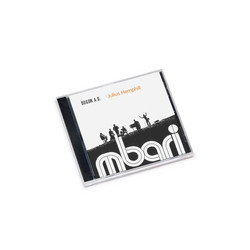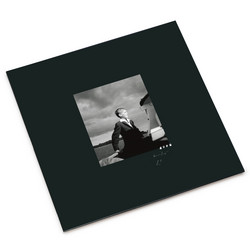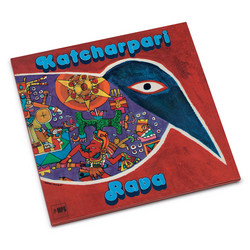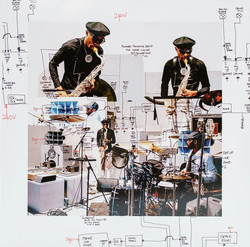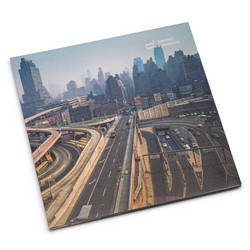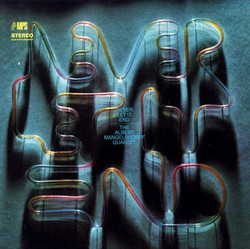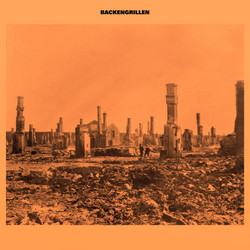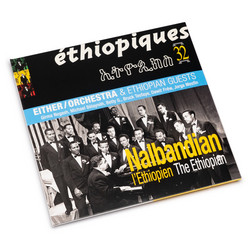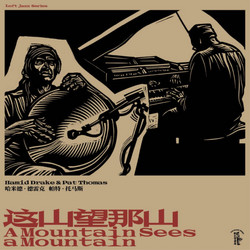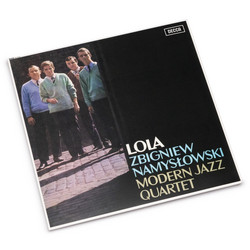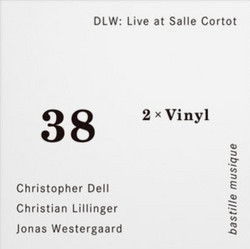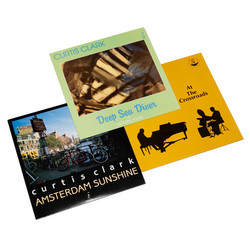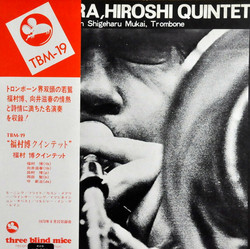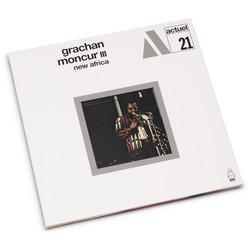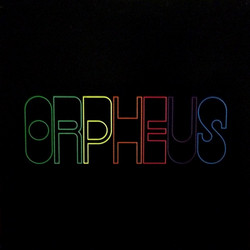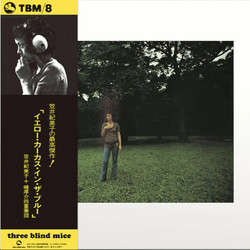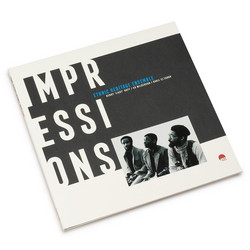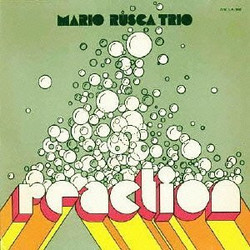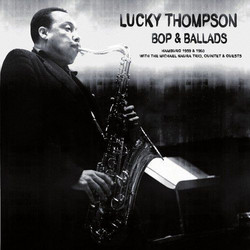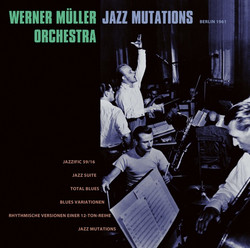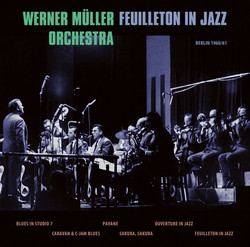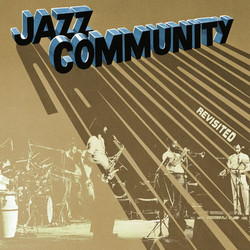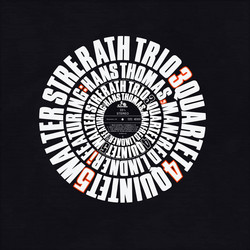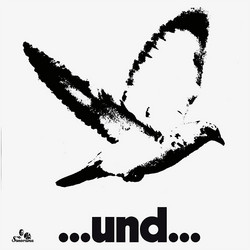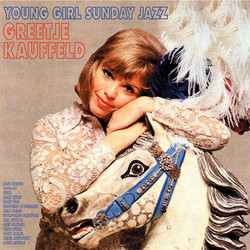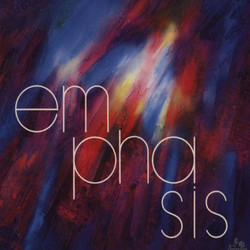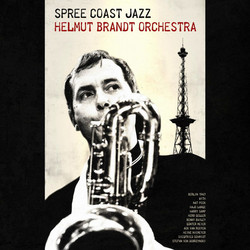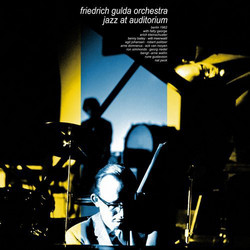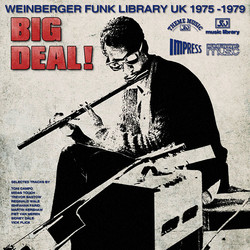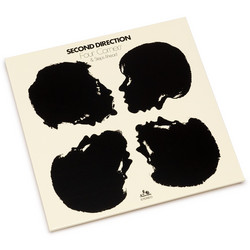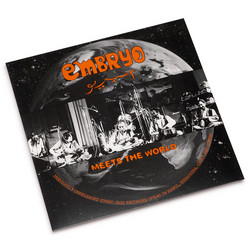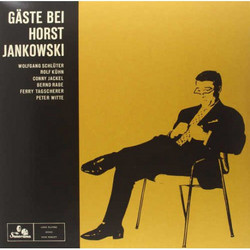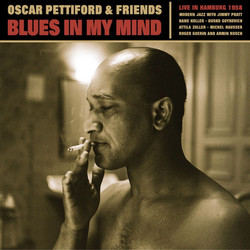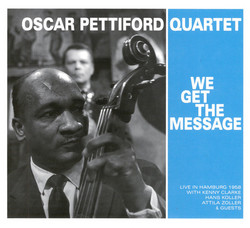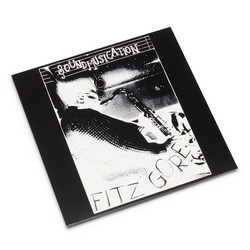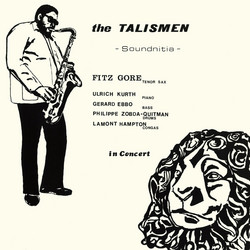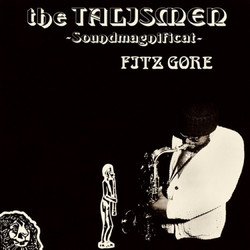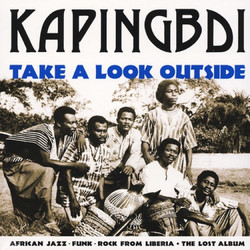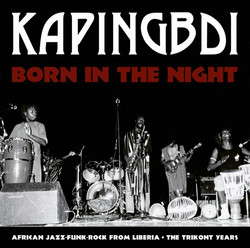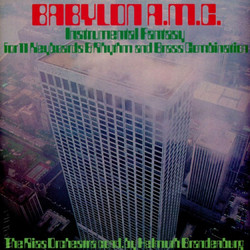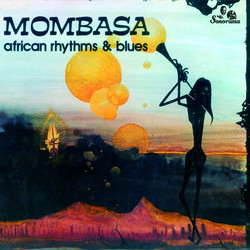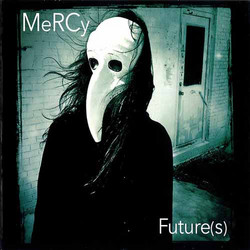*2022 reissue.* "Maskerade“ is among the most fascinating fusion and spiritual jazz LPs from West Germany. The sought after album was originally released in 1974 on the tiny label "Creative Music Records“, with only a few hundred copies known to exist. Leader Dieter Bihlmaier stands out as a fantastic flute player, recalling some of the best moments of icons like Eric Dolphy, Sahib Shihab or Jeremy Steig. Bassist Jan Jankeje, percussionist Gerhart Ziegler and vibraphonist Gerhard Dietz form his magnificent rhythm section, that fosters exploration of the group`s highly polyphonic compositions with a light touch of free jazz. This is the first reissue, lovingly remastered in 2022. Comes with original cover artwork and sleeve notes.
In the mid-70s, the "Dieter Bihlmaier Selection" is one of the most highly regarded jazz ensembles on the West German scene. As representatives of a "new" jazz style, the quartet plays at the most important progressive meetings in the country, the German Jazz Festival in Frankfurt, the Jazz- Ost-West Festival in Nuremberg, at Balver Höhle and many other events. The musicians also play recording sessions for the most important radio stations. They record two albums with different line-ups, "Maskerade" (1974 on Creative Music Records) and "Manipulsation" (1977 on Pläne Records). Their artistic goal is to find ways to a new jazz repertoire with an own musical expressiveness, finally enabling them to emancipate themselves from American role models.
With the unconventional instrumentation of various flutes, bass, drums and vibraphone, the polyphonic compositions on "Maskerade" cannot be pressed into the cliché of a certain jazz style. Rather, they are based on the roots of Afro-American music in combination with European and Asian influences. Different elements and musical styles flow into each other, sometimes imperceptibly. The musical arrangements vary between lyrical passages and explosive collective performances. Improvisation comes first, representing the "moment" and the "spiritual innerness" of the performers. This is complemented by a classic free jazz style, that merges the smallest rhythmic and melodic patterns as a sort of “raw material” to rebuild a large musical form.
In this way, the musicians create arcs of tension and tremendous intensity. The spiritual character of the music is determined by Dieter Bihlmaier's playing on different flutes, bamboo flutes and piccolo, with enchanting harmonies that usually sound clear and simple despite all their complexity. He studied music in Stuttgart and Berlin, most recently with the flutist Aurèle Nicolet. His flutes, a total of six, have both a melodic and rhythmic function. By using different blowing techniques, Bihlmaier reaches a wide variety of uncommon sounds. Often his compositions are interspersed with motifs of Asian, especially oriental, music ("Arco Oriental") and his flute sound is alienated by overblowing effects or even reverberation ("Roulette" or "Echoes").
In a spontaneous dialogue with the musicians, Bihlmaier's ideas are taken up for further development. Gerhart Ziegler is unique in his field. Since he lost his right arm in an accident, he plays the drums and percussion instruments with one arm. If you don't see him playing, you don't notice it. His performance is complex and subtle, rhythmically dense and with precise timing. Ziegler`s most important contribution to the music is pulsation, playing around and moving away from the main beats of the bar with 16th notes, triplets or even strong syncopations. He energizes the band with powerful breakbeats ("Maskerade" or "Echoes"), but also intersperses floating, almost trance-like, pads and solos ("Polyp`s Lullaby"). The man is also responsible for the unusual graphic design of the album cover.
The Slovakian bassist Jan Jankeje adds further rhythmic variations. He changes between walking bass, free improvisations and spiritual jazz grooves ("Gertouschka" or "Ovation"). Jankeje had emigrated to West Germany at the time of the Prague Spring and played with famous musicians like Benny Goodman or Jaco Pastorius before Bihlmaier brought him into the band. Little known, on the other hand, is Gerhard Dietz, who plays vibraphone on three tracks of the album. It was right after the recordings for “Maskerade” when he suddenly ended his career as a musician. His free playing is deeply pleasing. Listening to his performance, in which staccato chords compete with floating, pearly sounds, one would have wished that Dietz had continued playing.
At the time of production at Tonstudio Bauer, the great sound engineer Carlos Albrecht sat behind the mixing desk. This is another reason why the virtuoso recordings of "Maskerade" are impressively homogeneous. Later he became president of the “Verband Deutscher Tonmeister” (VDT/ Association of German Sound Engineers). Then Jan Jankeje and Gerhard Dietz leave the band. Dietz leaves for health reasons, while Jankeje founds his own label "Jazz Point". The band is joined by bassist Wolfgang Lauer and vibraphonist Wolfgang Lackerschmid. They continue extensive touring as a quintet with Albert Mangelsdorff. The following album "Manipulsation" remains the last by the Bihlmaier Selection before the band goes their separate ways. Already in 1978 Bihlmaier and Ziegler play in a new quartet, with Heinz Sauer and Buschi Niebergall.
Recorded May 1973 and March 1974 at Tonstudio Bauer in Ludwigsburg/ Germany Dieter Bihlmaier (Flute, Piccolo, various Bamboo Flutes), Jan Jankeje (Bass), Gerhart Ziegler (Drums, Percussion), Gerhard Dietz (Vibraphone on 5.-7.) Sound Engineer: Carlos Albrecht, Cover-Design: Gerhart Ziegler
